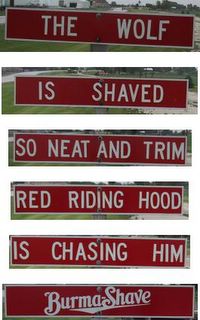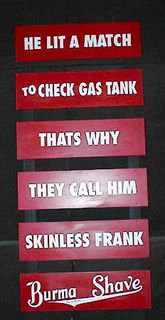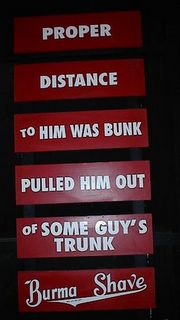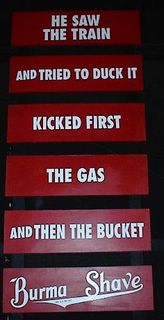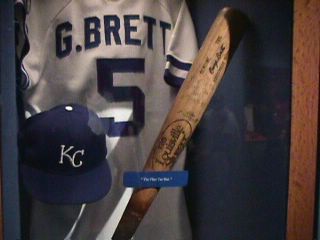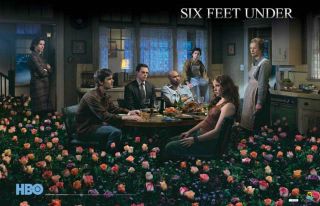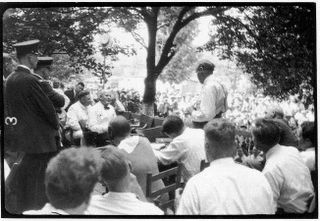
In 1925, Dayton, Tenn., high school teacher John Scopes was charged with teaching the theory of evolution. Doing so was a violation of a Tennessee law, passed that year, permitting only the teaching of "Divine Creation of man as taught in the Bible" in the state's public schools and universities. In an eight-day trial that dominated national headlines, Scopes was convicted and fined $100. This picture was taken on a day when the trial was moved outdoors because of the heat inside the courthouse and shows Clarence Darrow, Scopes lawyer and a famed defense attorney of his day, interrogating William Jennings Bryan, the prosecutor and three-time Democratic presidential nominee who led the antievolution movement in America. The Smithsonian Institute in their archives, about 60 previously unpublished photos from the Scopes trial. You can view these photos at: http://siarchives.si.edu/research/scopes.html. In 1927, the Tennessee Supreme Court upheld the Butler Act, the law that banned teaching evolution in public school. Tennessee repealed the Butler Act in 1967 and a year later the U. S. Supreme Court struck down an Arkansas antievolution law. A play based on the trial, "Inherit the Wind," opened on Broadway in 1955 and was adapted into a film in 1960.










